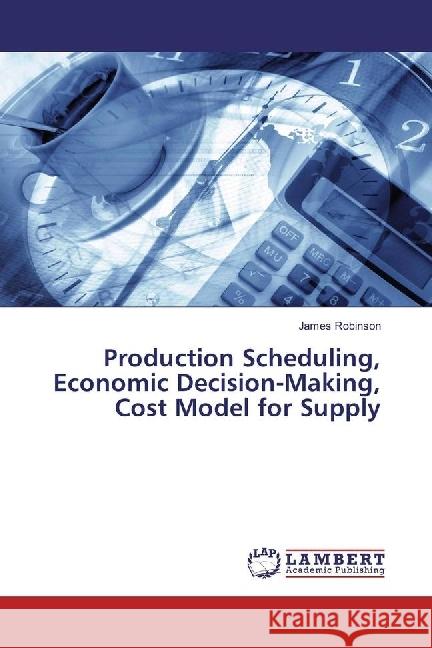Production Scheduling, Economic Decision-Making, Cost Model for Supply » książka
Production Scheduling, Economic Decision-Making, Cost Model for Supply
ISBN-13: 9783330075771 / Angielski / Miękka / 2017 / 52 str.
In the recent years there have been several forces that have increased the competition between companies. Such forces are for example: improved transport facilities, trade regions and information technology. Those forces have enabled the increased globalization, which has increased the competition. These quality improvements have forced company to focus on the efficient reduction of cost wherever possible. As a result, many companies have outsourced manufacturing activities to low-cost manufacturing countries, which means that the supply chain management has became a new frontier in the business strategy. The best known method of cost estimation of a product is effectively and correctly modelling the activities. However, outsourcing manufacturing activities elsewhere can be two-fold. On one hand, there can be positive gains such as increased profits from the relocation. On the other hand, unforeseen or indirect cost can suddenly appear and create investment problems. The term that best describes this situation in a company is supply chain strategy not to be confused by supply chain management. Supply chain strategy is an iterative process that evaluates the cost benefit tradeoffs











